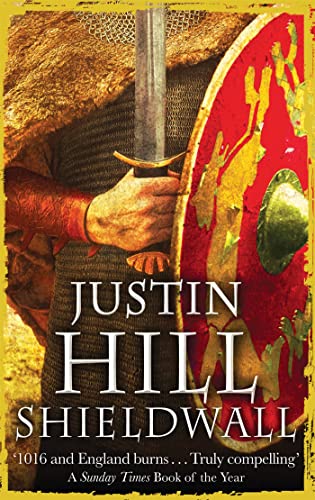

Hill does a fine job of showing the reader how intertwined the House of Cerdic, the kings of Wessex, had become with the very idea of England, so that, despite Ethelred's manifest incapacity as king, no one attempted to depose him. Despite Ethelred's cowardice, duplicity and treachery, they stick with him through everything. It's the turn of the second millennium and England is cursed with probably the worst king it has ever suffered - Ethelred - and also, strangely but equally, the country is cursed with a people that are too faithful to their unworthy king. Shieldwall is, I think, the best evocation of late Anglo-Saxon England that I've read. Hill gives us an inspiring portrait of this Anglo-Saxon king, writes him as he should be written, like the warriors in the sagas of old. Although Godwin is the main character in this novel, Hill’s Edmund Ironside is beautifully and sympathetically drawn as he defends his kingdom against the Danes. For me, the high point of the novel, and of Hill’s writing, comes near the end, where Hill’s prose is brilliantly moving, especially if one is familiar with the history of that pre-Conquest world. It is well done, although one particular battle scene goes on a bit too long for this reader. Hill does not shy away from describing the horrors of battle in the 11th century.


(He manipulates the historical time-line with Æthelred’s mother, but I could see why and this is, after all, fiction. It is a man’s book, telling of the deeds of warriors, although kudos to Hill for giving small but significant roles to his female characters: to the fictional Kendra, to King Æthelred’s mother, and to Queen Emma. In Hill’s book I could see the influence of the sagas, of Anglo-Saxon poetry, and of Professor Tolkien’s trilogy about Middle Earth. What I found were similarities – after all, we based our stories on the same events – and huge differences. The story is set in the same historical period in which I am writing, and because I am attempting to tell a story that focuses on the women of this time, I was interested in seeing how a male author would deal with the same material and characters. I heard Justin Hill speak about this book at a Medievalist conference earlier this year, and I bought it on the spot.



 0 kommentar(er)
0 kommentar(er)
